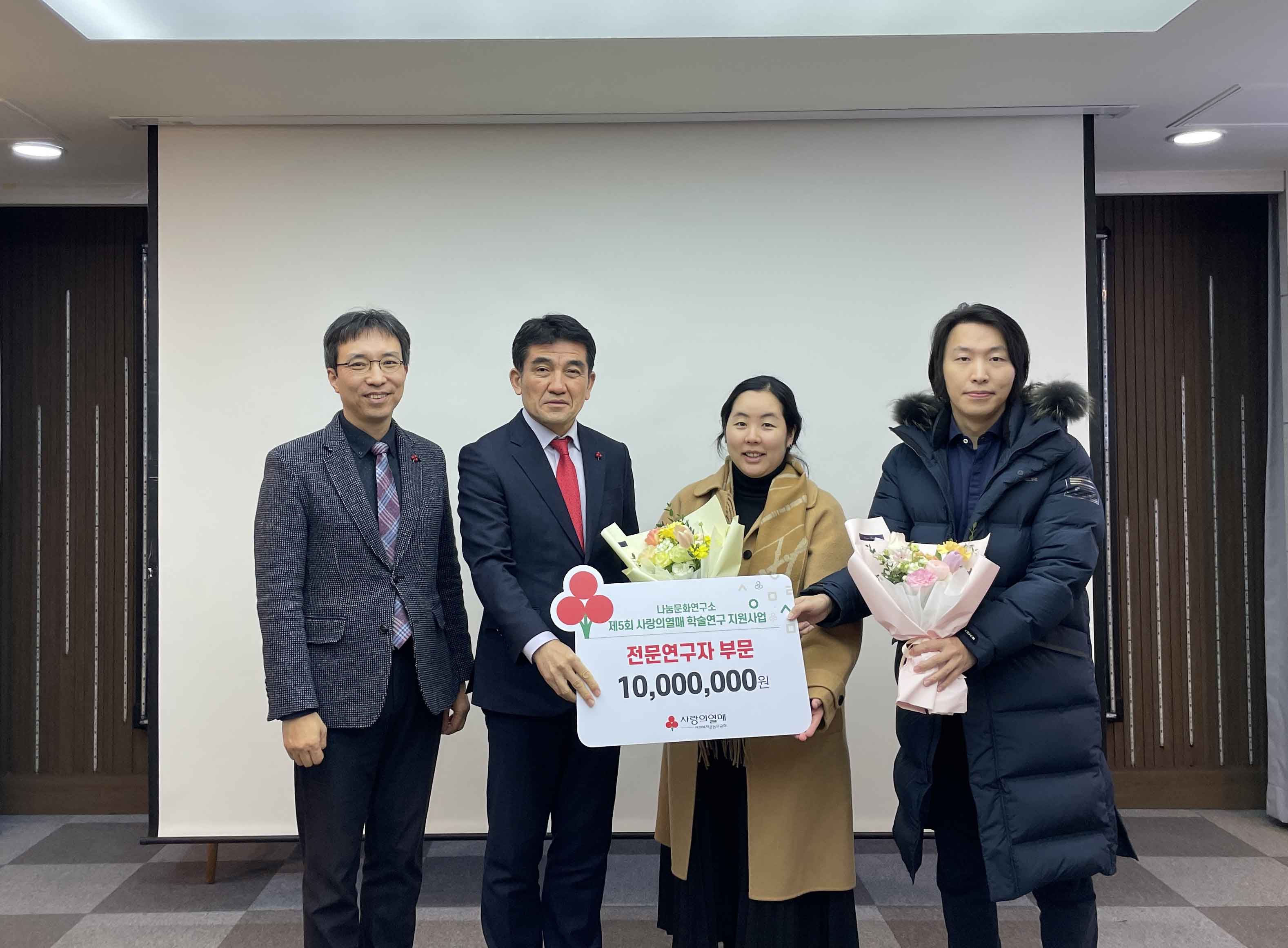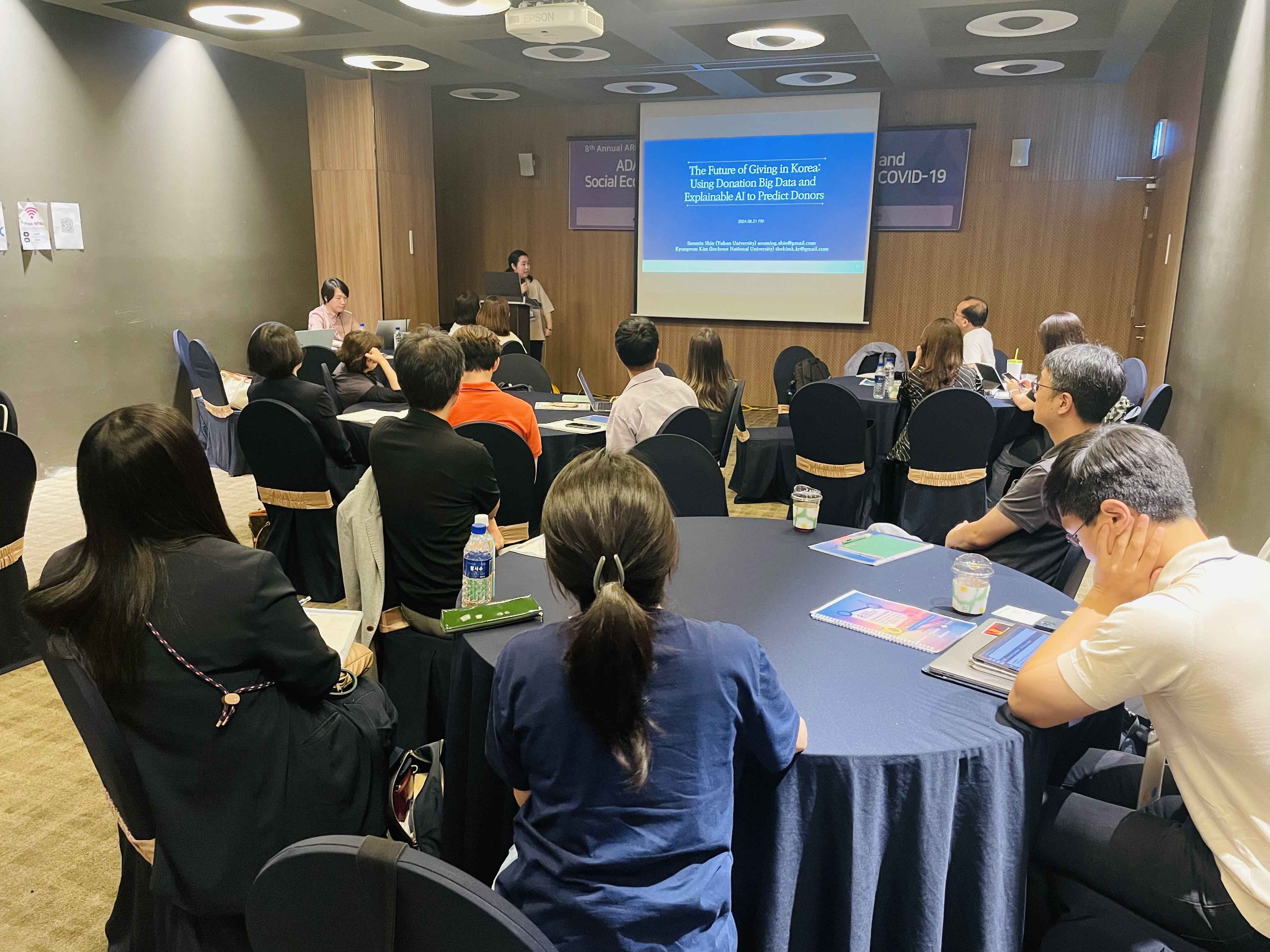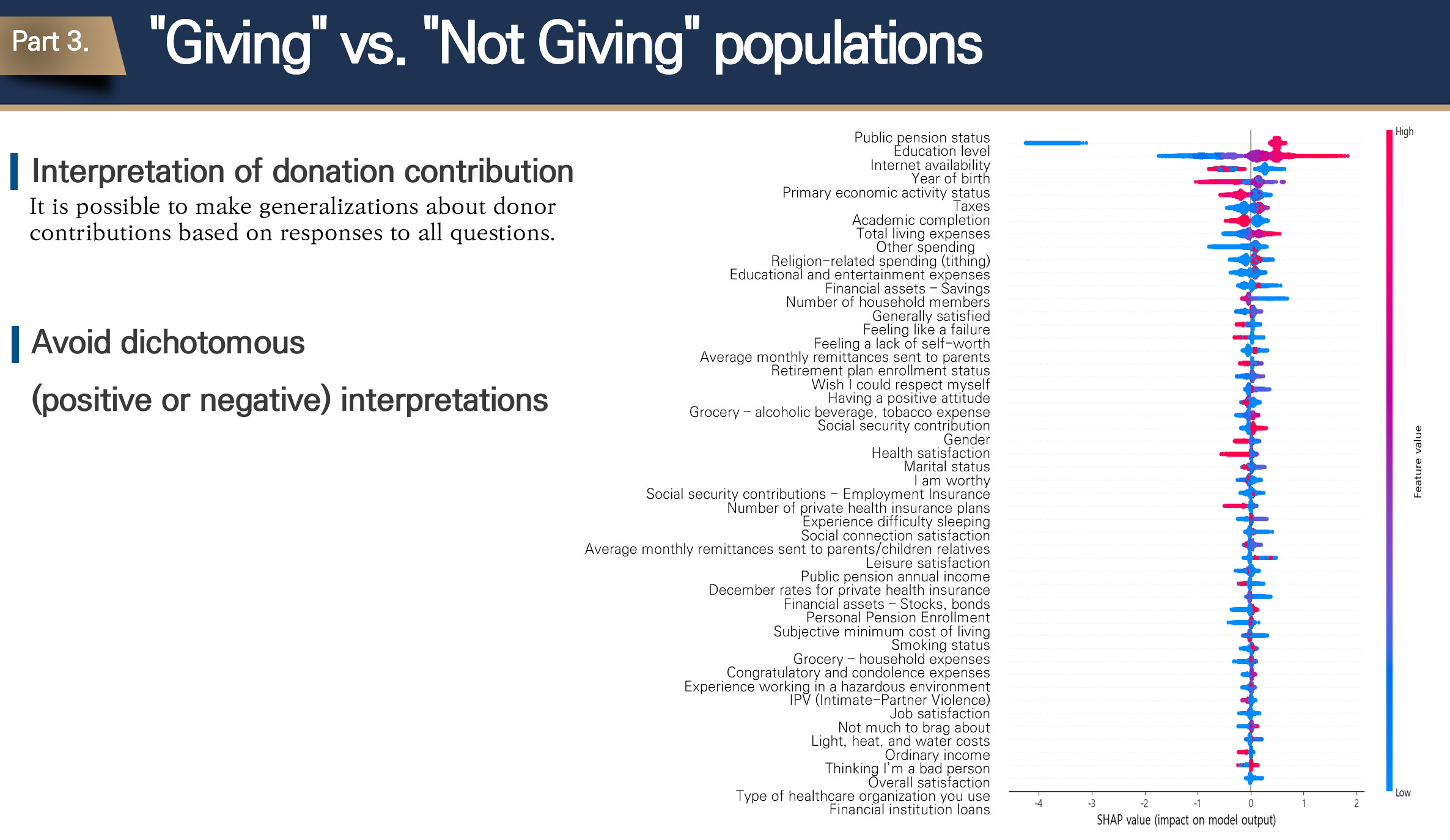Professor Kim Kyung-won of Incheon National University presents a methodology for predicting explainable artificial intelligence-based "Social AI Analytics" to improve individual donation participation rate as a non-profit social capital
- 글번호
- 403745
- 작성일
- 2025-03-18
- 수정일
- 2025-03-18
- 작성자
- 홍보팀 (032-835-9490)
- 조회수
- 822


Achieving 91.43% accuracy in predicting large donors through explainable artificial intelligence and developing a real-time personalized donation probability inference platform for individual donations, which is gradually decreasing due to gaps across society
Kim Kyung-won, a professor at Incheon National University, and Shin Soo-min, a professor at Korea National University of Transportation, were finally selected as "the 5th Sharing Culture Research Institute's Academic Research Support Project Specialist" and completed the study by reporting and sharing the final research results in the auditorium of the Community Chest of Korea Hall on January 15, 2025.
The Community Chest of Korea Sharing Culture Institute supports academic research activities every year to find outstanding researchers who conduct research in the fields of donation, sharing, and non-profit and actually contribute to revitalizing the sharing culture. Professor Kim Kyung-won and Professor Shin Soo-min's research team conducted "a prediction study on individual donors using donation big data and explainable artificial intelligence (XAI)" and presented "Big Data and AI-based donation strategy Future: Social AI Analytics," which can predict people's donation probabilities in real time, beyond fragmentary fact-checking that identifies "the characteristics of donors in the past."

Recently, our society experienced an economic crisis and contraction due to the COVID-19 outbreak in 2020, and as a result, gaps have become widespread throughout society, such as a decrease in jobs and an increase in youth unemployment. In the rapidly changing socio-economic situation, a new social risk that is not covered by public assistance or social insurance has arrived, making it important to secure resources through the private sector, such as civil society and non-profit sectors, which are third areas. Over the past 20 years, the average donation ratio has been 65% for individuals and 35% for companies. However, according to the results of the Statistics Korea Social Survey, the individual donation participation rate continues to decline despite the annual growth in donation size.
The research team presented a practical and effective big data and artificial intelligence-based methodology that can increase the participation rate of individuals who continue to decline, achieving 81.06% accuracy for those who want to donate using big data from the past five years and 91.43% accuracy for those who want to donate more than 10 million won among the Korean Welfare Panel and Microdata Services. This could be seen as a new "Social AI Analytics" that goes beyond the traditional methodology and broadens the horizon in planning and strategies of donation culture.
Professor Kim Kyung-won, who took the lead in developing Social AI Analytics, said, "I am happy to present Social Impact that can help create a healthy society through major donation resources that promote welfare, while connecting AI technology with donors through non-profit organizations rather than linking producers and consumers of traditional businesses, and easing many problems and tensions that are emerging in society." I have always felt heavy as a scholar because our society seems to be becoming a culture where conflicts are intensifying and it is not easy to share and share. Through this study, we will strengthen a culture where we can naturally share from small things, and I hope that big data and artificial intelligence will contribute to the health not only of business but also of society as a whole."
- 첨부파일
- 첨부파일이(가) 없습니다.

